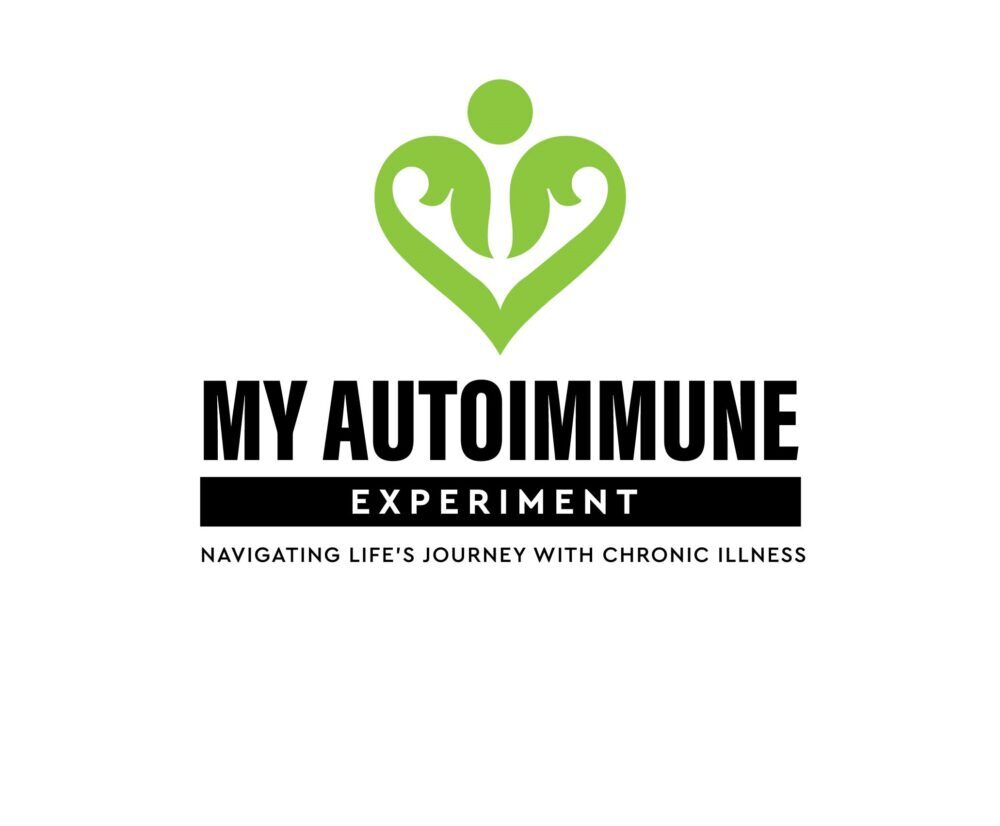
When Patients Need Patience

When we feel our worst, we are most vulnerable. Feeling worried and afraid of what may come is perfectly normal. It’s also natural to wonder how life will change and how an illness and the medications prescribed will affect relationships, career, and life in general. Living with a chronic condition is hard. As a patient with four autoimmune disease diagnoses, each new experience has been just as difficult as the last. Emotions run rampant through the journey with feelings ranging from relief for finally knowing what’s actually wrong to grief for losing part of yourself and not knowing whether or not you’ll get that part back. It would be easy to assume that the life of a chronic illness sufferer requires strength and courage, but most people wouldn’t understand the amount of patience it actually takes to be a patient. This goes beyond waiting for a diagnosis, test results, or an appointment. If you are struggling with this emotional aspect of being a patient, you’re not alone.
There is no doubt that most medical practitioners are quite capable and have good intentions, but even with good intentions, problems in the doctor’s office still can exist and can leave physically ill patients feeling worse mentally as well. Along with the anxiety that comes with all the unknowns, patients may find themselves needing patience with procedures, office staff, and others who insist there is nothing wrong. Having lived with chronic illness for three decades, I’ve had the opportunity to hear many patient experiences, and some of the most important takeaways are that you have to be your own advocate no matter how others treat you in the process. You are the only one who knows exactly how you feel, and no matter how much patience it takes to navigate the medical system, you deserve to feel your best, and you deserve the best care.
“You Look Perfectly Healthy”

This scenario is all too common with invisible illnesses. You have symptoms, but appear to be fine to everyone around you. The words, “You look perfectly healthy” require the utmost patience. My first diagnosis came as a young teen. I was completely exhausted no matter how much I tried to rest, and I was losing weight unintentionally. I also was incredibly thirsty all the time.
The day of my appointment came, and my parents took me to their own doctor whom I had never met. “There’s nothing wrong with her,” he stated. “She looks perfectly healthy. Teens just tend to pack a lot in their schedules, so feeling tired is normal.”
I felt ignored and with my parent’s persistence, the doctor ran some bloodwork and scheduled another appointment in 2 weeks to review results. Unfortunately, my blood test results required immediate action that he didn’t take, and his sense of alarm made it clear he was looking at my bloodwork for the first time during my second visit. I needed to go immediately to the hospital and would be there for a while.
Type 1 diabetes should have been an easy diagnosis for anyone taking the time to look at my test results. I can remember the anger my parents expressed along with their compassion for a doctor who was preoccupied with a personal crisis. I was treated and my blood sugar brought back under control. I returned home from the hospital after a few weeks, but the patience the situation required was more than a sick child and her parents should need during an already difficult time.
The next doctor who told me I was fine was also a new doctor who I had switched to after a move to a different city. Although I had some good days, I had daily stomach pain, barely had the strength to stand up on most days, and spent more time in the bathroom than anyone ever should. I was a stay-at-home mom of 3 preschoolers and absolutely could not keep up with them, which had never been a problem before.
After several doctor’s visits ending with him telling me I looked perfectly healthy, I gave an emotional description of my nagging symptoms and pleaded with him to take me seriously. It wasn’t until this conversation that I felt he really listened and told me to call the office on my next bad day and tell them he said he would see me immediately.
Sure enough, the sight of me at my worst alarmed my new doctor, and he realized how wrong he had been. He ordered tests and ended up sending me to a specialist where I ultimately received my celiac disease diagnosis. Yet again, it took a huge amount of patience for me to wait for the physician to take me seriously while I felt my condition deteriorating. I was not overweight to start and had lost 27 pounds by the time of my diagnosis.
It took patience for me to discover that this was a great doctor who just made a mistake. Doctors have difficult jobs, and they have to make many determinations each day as they save lives. Sometimes, as patients, our own unintended sacrifices teach doctors valuable lessons. Nevertheless, in the process we may end up losing valuable time and quality of life.
“You Might Need Mental Rather Than Physical Help”
Additional difficulties can arise when doctors assume the patient is not mentally stable. This has happened to a few people I know during the diagnosis stage and is certainly far from the comforting care a patient deserves. I ‘ve mentioned in other posts that my mother has multiple sclerosis. In the beginning, she had a gradual onset of weakness that doctors dismissed, but one day she woke up and couldn’t move half of her body. Despite the fact that she couldn’t walk, the first doctors she saw were convinced her troubles were all in her head. It wasn’t until she searched for a specialist with a terrific reputation that she was able to get the help and the answers she needed.
My friend Thomas had the same problem with his Lyme disease diagnosis. He is one of the most calm and peaceful people I know, but his medical problems were blamed on stress and anxiety when, in actuality, the only anxiety he had was from doctors not taking him seriously. After some worsening symptoms, his wife drove him farther away to a medical facility that they thought might be an option for better care. However, he got the same treatment when he arrived, and doctor’s there told his wife that it would be beneficial for him to be evaluated by mental health professionals. Through the couple’s own research, they realized that Thomas might have Lyme and found a specialist who diagnosed him and set him on track to better health, but not without some lingering problems.
Once again, both patients needed care and understanding. They needed someone willing to listen and to really help. Instead, they were forced to exhibit patience in trying situations.
Empathy Should Be a Requirement

Even when you have a terrific doctor who is truly helping, others in the practice may leave you needing an overflow of patience. A few years ago, I called my physician’s office to ask for a medical deferral for jury duty. I was taking prednisone daily for a few months to treat sarcoidosis, and because of it, my blood sugars were skyrocketing. Prednisone also caused me to have a tremendous amount of anxiety and led to depression, both of which were new to me. I surely wasn’t capable of thinking clearly enough to determine someone’s future.
This sounds easy enough–a newly diagnosed patient on meds with terrible side effects known to cause personality disturbances shouldn’t serve on a jury. I called one of my doctor’s offices and explained the problems I was having to an employee I had never met. She replied, “Well, we certainly can’t delay your civic responsibility because your blood sugar levels are too high. You should be doing something to fix them.”
I told her that I had been calling their office at least once a week so the doctor could adjust my insulin dosages, and she explained that she didn’t see how high blood sugars would affect my ability to serve on a jury. At that point, I lost every ounce of patience I had and retorted that empathy might help someone in her position. Anyone who knows me at all knows I don’t tell people off; I’m typically very polite, and I avoid conflict at all costs, but, apparently, I have a limit.
My husband, who heard the entire conversation and understands my peaceful nature, knew instantly that I was crying because I felt bad for losing my patience, moreso than for the way she treated me. While he told me he would have lost his temper way before I did, I felt miserable. The situation required more patience than I could muster while feeling terribly sick and vulnerable.
Unfortunately, the empathy problem seems to remain unchecked in the medical world. In one scenario, Naomi needed to see a specialist. The referring office was told that she had to wait two months since she was new to the specialist’s practice. However, Naomi wasn’t actually a new patient. When she called the specialist back later to request an earlier appointment since she had been seen there previously, the receptionist loudly told her she would get a lot further if she would just tell the truth. She then stated that they would be able to find Naomi’s records if she were being honest. The office later found her records, but that didn’t change her situation and the emotions it caused.
In another disturbing experience, Kara started to develop strange rashes and was unsure if they were related to her chronic illness, new medications, or something entirely different. One of the rashes began to look infected and to spread, along with being uncomfortably itchy. The rash was on her breast, and she took a picture of that rash so she could still ask about it if it went away before her next appointment. When the rash continued to worsen, she called her doctor’s office for advice. The nurse she spoke to, instead of showing any concern for Kara’s worries, fixated on the location of the rash and the fact that Kara had taken a picture of it.
“You took a picture of your breast!” the nurse exclaimed.
“No,” replied Kara, “I took a picture of the rash on my breast. I need help with the rash.”
“You took a picture of your breast!” the nurse reiterated.
The conversation continued with a similar exchange until Kara hung up with no medical guidance whatsoever. Kara reported that she felt belittled, judged, and unheard. She also shared that she felt as though she were dealing with a twelve-year-old rather than a nurse.
Go with Your Gut

Finally, you know how you feel, and, most likely, your instinct is a good gauge on whether or not problem needs to be investigated more. I can still remember clearly my son’s six-month well-baby check up. He was due for shots, but he had a fever and an ear infection.
“I really don’t want him to get his shots when he already has a fever. Shouldn’t I bring him back for his immunizations when he’s healthy?” I asked.
After a short discussion, the pediatrician, obviously annoyed, replied, “Who’s the doctor here? He’ll be fine.”
Several hours later, while I was at the pharmacy picking up more medication for my baby’s rising fever, my husband had to call an ambulance when my son had a febrile seizure. My son was admitted to the hospital while I questioned why I didn’t listen to my instinct and press further for the sake of his health.
In a perfect world, patients are diagnosed easily, the medical office staff always listens and is empathetic and caring without judging, and nurses’ responses to their patients don’t include ridiculous comments and are focused strictly on the health issue at hand. We all know it’s not a perfect world, though. In real life, we need a a great deal of patience to survive our conditions and to thrive in the care that they require. Remember, as you encounter situations that frustrate or sadden you, that you are not alone, you should never blame yourself for someone else’s misguided actions. The world is full of patients who need patience to survive, and you need to be your own advocate for your best care.
(Names of those interviewed have been changed at their request for privacy purposes.)
Please feel free to share your own experience in the comments with the hope that your stories will help others.








